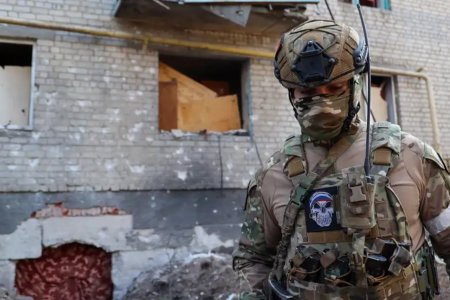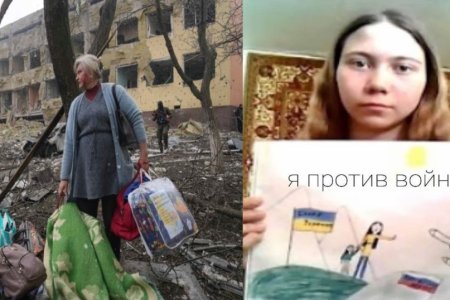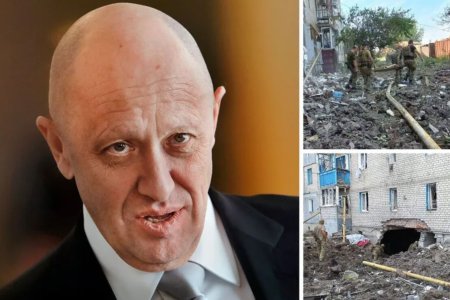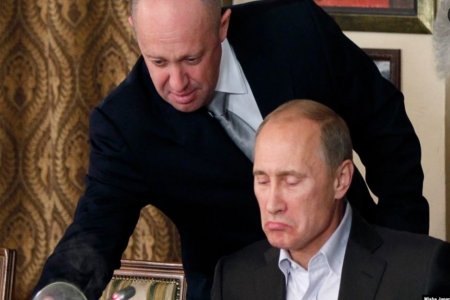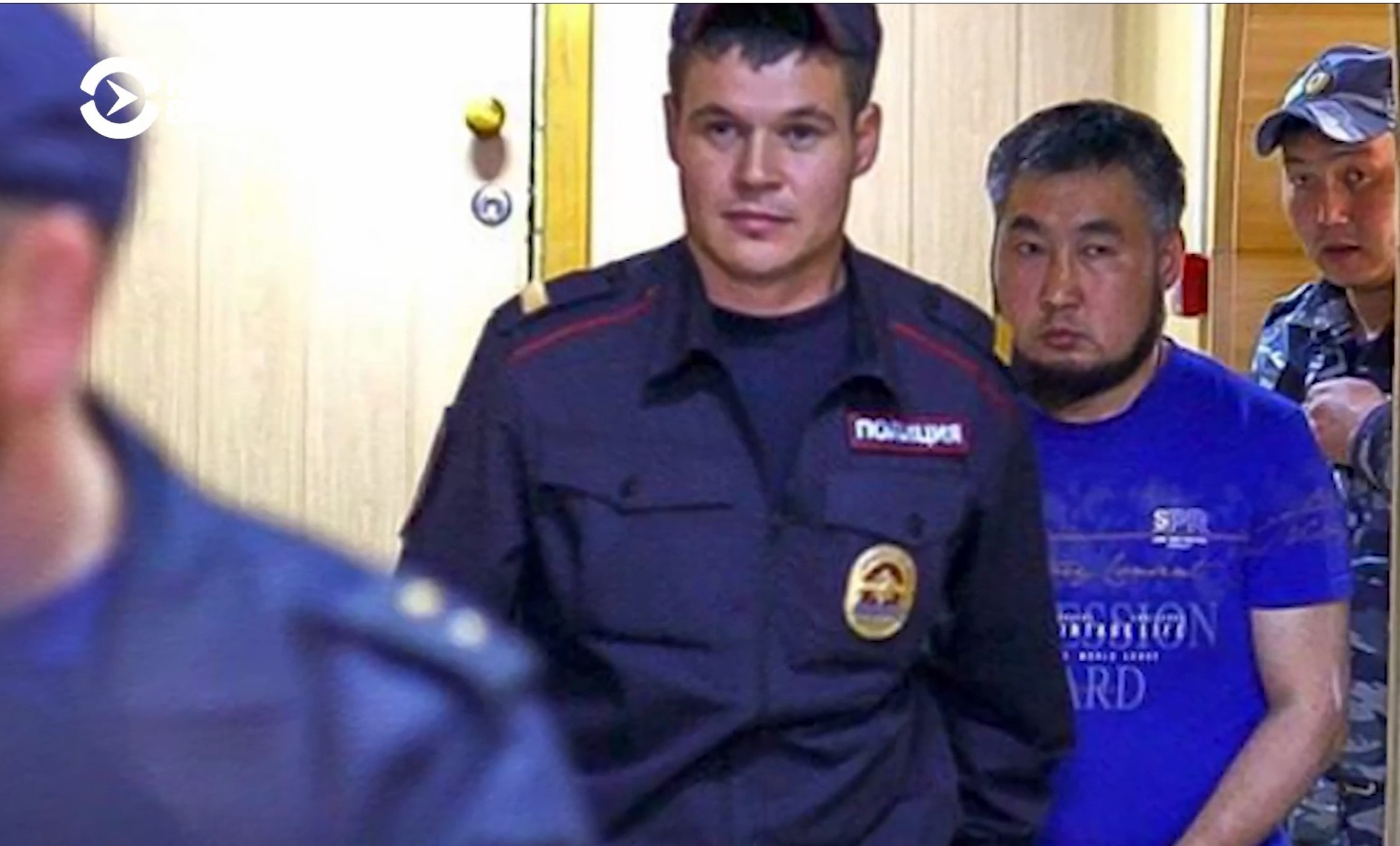
A new draft law is being rushed through Russia’s State Duma to formalize Russia’s release of people either accused or convicted of crimes if they agree to fight Russia’s war against Ukraine. First tabled on 6 March, the new bill passed through its first reading on 12 March and looks likely to shortly be signed into law by Russian leader Vladimir Putin. It will both broaden the scope of present measures aimed at using suspected or convicted criminals to fight Russia’s war and help Moscow to conceal the ever-mounting number of grave crimes committed by convicted criminals earlier released and pardoned in exchange for killing Ukrainians.
The bill makes it possible for those under criminal investigation, on trial or already convicted to get the charges dropped or sentence suspended if they sign a contract to fight in Russia’s army. The first reports, citing Pavel Krasheninnikov, one of the bill’s three authors, acknowledged that the bill was to cover contracts during the period of what Russia euphemistically calls its ‘special military operation’ (i.e. its war against Ukraine). In fact, however, both the bill from June 2023 which this is to extend and replace, and that now passed in its first reading state that the contracts are “for the periods of mobilization, martial law and in wartime”. While Krasheninnikov asserts that the earlier, June 2023, law was of a temporary nature and demonstrated that the mechanism works and can be added to the criminal and criminal procedure codes, the aim of this new bill is doubtless to significantly increase the number of likely ‘recruits’. The point is not only that it now covers those held in detention in the appalling conditions of Russian SIZO. While the text claims to stipulate guarantees that any contracts are entered into voluntarily, these are largely meaningless while men are ‘under investigation’, and can have the charges and, therefore, likely sentence, made much more serious should they refuse to cooperate.
The other aspect of this “working mechanism” that the bill will help to muffle is the mounting number of formerly released criminals being rearrested for murder and other grave crimes. In reporting the new bill on 7 March, Current Time mentioned the case of Tsyren-Dorzhi Tsyrenzhapov from Chita who was released from prison while serving a 14-year-sentence for dismembering an 18-year-old girl. Having been released, and almost certainly pardoned, he was convicted again, and sentenced to 14 years for murdering another woman who was just 22.
On 29 February, in his address to the Federal Assembly, Putin called ‘veterans’ of Russia’s war against Ukraine “Russia’s elite”, “reliable, tested by their deeds and having proven their commitment to Russia”, and “worthy people”. As reported, some of these convicted murderers and other such ‘worthy people’ have been sent into schools to teach children about ‘courage’.
Olga Romanova, founder of ‘Russia Behind Bars’, told Current Time that the Russian defence ministry has, since 1 February 2023, recruited as many prisoners as Yevgeny Prigozhin for his so-called Wagner Unit (or ‘private military company’). There are, she says, no less than 50 thousand former prisoners who received presidential pardons, via secret presidential decrees. Such prisoners had to fight only six months in order to gain their freedom while those mobilized or serving contracts were left to fight to the end of the war. Romanova cites just one very average oblast where over half of those former prisoners who returned have again ended up behind bars. Such people are for Russia’s military “a unique source” of fighters since such men already have experience of the war and prefer to return there than to prison.
This time, however, the situation will be quite different. Romanova notes that Putin was well aware that he had pardoned 50 thousand criminals who were now free to return to commit new crimes. That changed with the June 2023 law which excluded the possibility of such pardons. Although the conveyor belt of prisoners sent to the front continued, the men were now released ‘conditionally’, with no end date to their time at the front. She says that by the end of March, those who were still recruited for limited periods will be released and will get their pardons. Those released after that date are sent to the front with no return date.
Aside from the ever-mounting number of political prisoners, many of whom are imprisoned for their opposition to the war, Russia’s prison colonies have been emptied (at least of those willing to fight). The new bill, Romanova notes, will provide Russia with a new source of men to be sent to fight, namely those held in SIZO.
A person who agreed to fight in Ukraine will be entitled to the full dropping of charges or waiving of the conviction if they were discharged due to the end of mobilization, or if they received a state honour. At least one mass murderer is known to have been (posthumously) awarded state honours. Given that Putin responded to international horror over the atrocities committed by Russian soldiers believed to be from the 64th Motor Rifle Brigade by awarding those very soldiers for “mass heroism, daring, tenacity and courage”, it seems likely that many other criminals have received such honours.
In theory, only those facing or convicted of minor or medium severity crimes are eligible for such waivers. In fact, this was the claim from the outset, yet it is known that those convicted of murder and violent crimes were also released (and pardoned by Putin) to fight in Ukraine. The same seems likely now, especially since almost all of the types of ‘crimes’ mentioned as precluding such conditional release (crimes ‘against public safety’ or ‘against state security’, ‘terrorism’) are those which Russia is using to sentence Crimean Tatar and other Ukrainian political prisoners to long terms of imprisonment. The list of those not eligible for such release mentions only those accused or convicted of sexual crimes against minors, not murder or other violent crimes.
While getting at least some of the convicted murderers and other criminals who return to commit new crimes out of the public eye, the bill will serve another purpose, aimed at assuaging public resentment. The initial pardons effectively meant that the convictions were quashed, leaving the victims without any right to the compensation that courts had earlier awarded them. This new bill specifically states that orders of compensation would remain in force.
